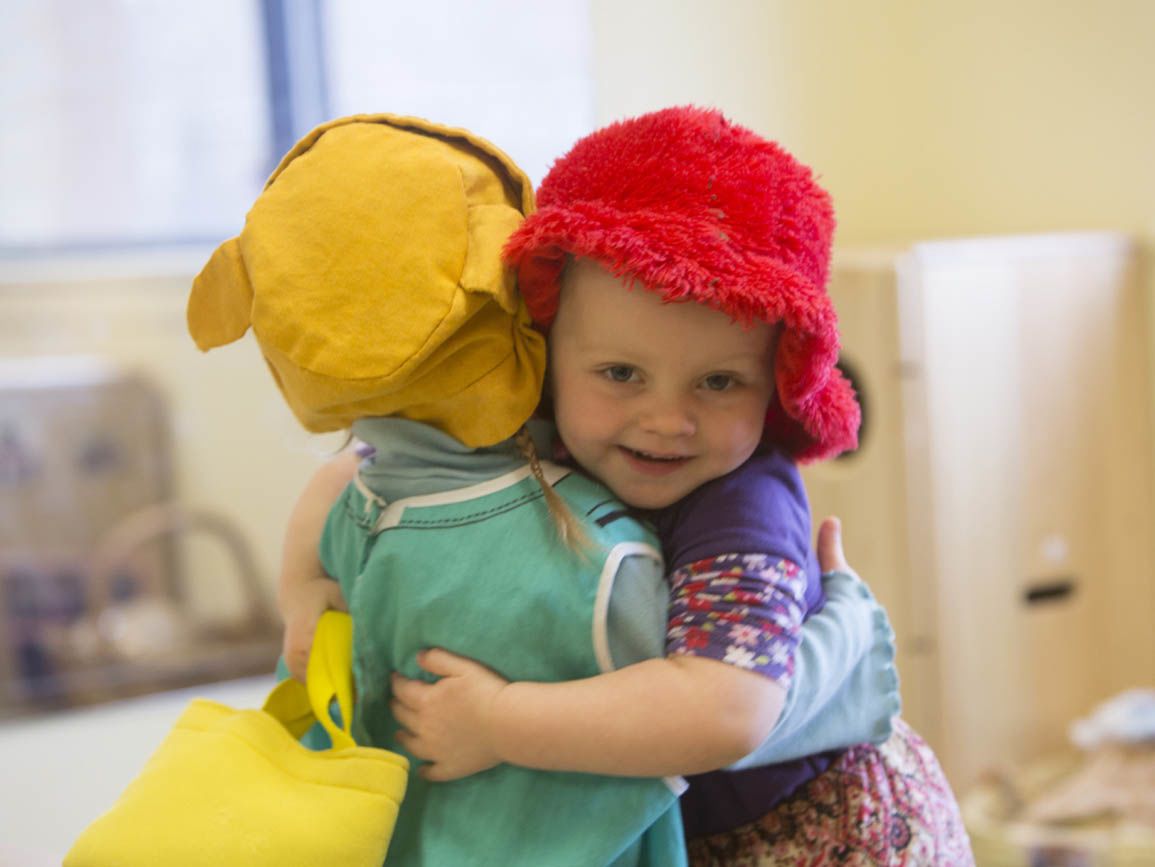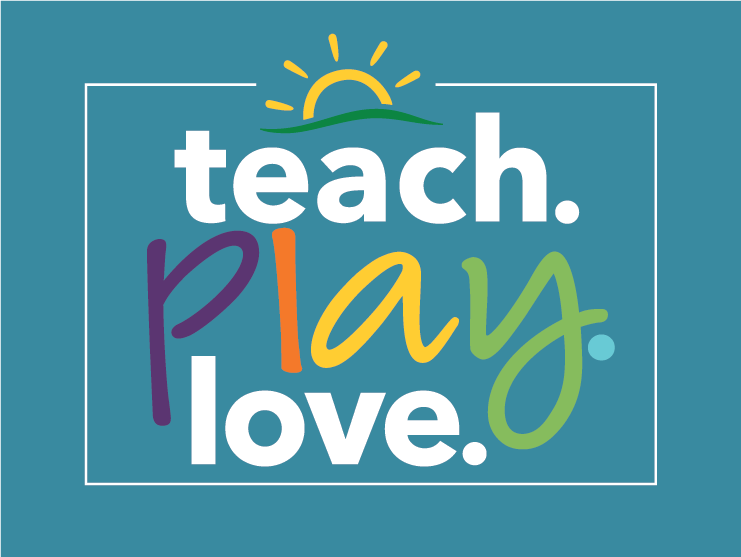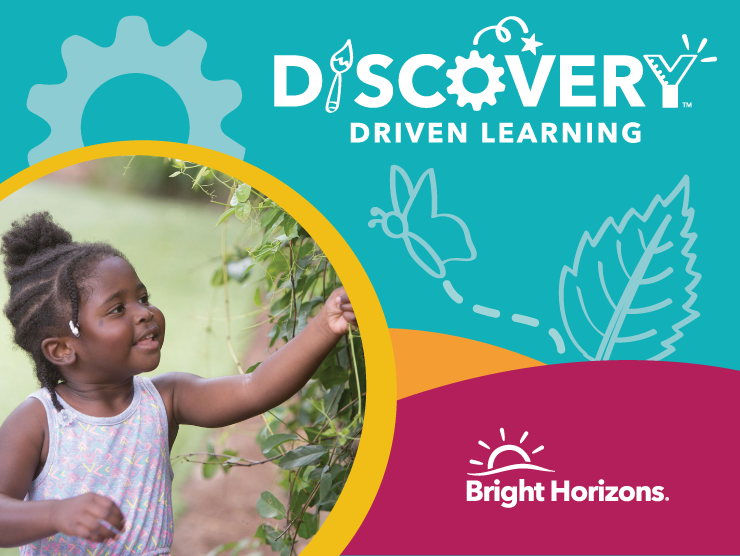Where can you find police officers, veterinarians, office workers, princesses, karate instructors, and chefs all happily working side-by-side?
In the dramatic play area of a child’s classroom, of course.
Many assume that fun and imaginative pretend play — in classrooms or at home — has limited educational value. But that’s hardly the case!
The truth is, in the midst of creating a restaurant together, clomping around in grown-up shoes, or twirling around with friends in a fairytale land, children learn to solve problems, coordinate, cooperate, and think flexibly.
Imagine the skills required to turn the sandbox into a dinosaur bone excavation site!
In her 2015 article Pretend Play, Dr. Deena Skolnick Weisberg states that “pretend play has been theorized to share some of its cognitive structures with some of our most important cognitive and social abilities, including symbolic understanding, theory of mind, and counterfactual reasoning.”
What is pretend play and how does it help children learn?
Pretending is important in child development.
Through pretend play, children:
- Learn about themselves and the world. Dramatic play experiences are some of the first ways children learn about their likes and dislikes, their interests, and their abilities. They experiment with role playing and work to make sense out of what they’ve observed. Just watch children playing with dolls to see examples of this. Dolls often become versions of the child themself and are a safe way for children to express new ideas and feelings.
- Work out confusing, scary, or new life issues. Have you ever witnessed children pretending to visit the doctor? One child dutifully holds the mock stethoscope as the others line up for a check-up. Often someone gets ‘shots’. This is a child’s way of exploring an experience that is common and sometimes confusing or scary. Through these role plays, children become more comfortable and prepared for life events in a safe way. Children often use pretend play to work out more personal challenging life events too, whether it is coping with an illness in the family, the absence of a parent or divorce, or a new baby joining the family.
- Develop important complex social and higher order thinking skills. Pretend play is much more than simple play activities; it requires advanced thinking strategies, communication, and social skills. Through pretend play, children learn to do things like negotiate, consider others’ perspectives, transfer knowledge from one situation to another, delay gratification, balance their own ideas with others, develop a plan and act on it, explore symbolism, express and listen to thoughts and ideas, assign tasks and roles, and synthesize different information and ideas. In this creative play description, we could just as easily be describing the skills needed to successfully manage a work project for an adult as describing children’s pretend play.
- Cultivate social and emotional intelligence. How we interact with others is key to our lifelong success and happiness. Knowing how to read social cues, recognize and regulate emotions, negotiate and take turns, and engage in a long-term activity that is mutually beneficial are no easy tasks. There is no substitute for creative and imaginative play when it comes to teaching and enhancing these abilities in children.
- Synthesize knowledge and skills. Because learning and child development doesn’t happen in discrete pockets of time or during isolated activities, children need opportunities to blend their skills and knowledge together. Pretend play is an ideal way to do this. Think of children playing ‘grocery store’. They sort by attributes as they group similar foods in sections of the store, use math concepts to tabulate amounts as they determine prices and calculate grocery bills, use writing to communicate by making signs, experiment with shapes and weights as they organize the store, work collaboratively as they assign roles and play together, and much more.
Dramatic play ideas & activities for children
As a parent or caregiver, you further encourage learning skills and child development as kids engage in pretending.
Here are a few children’s activities and tips for pretend play.
- Use stories: Invite your children to recreate a favorite story or take it further and add their own twist. During your pretending game, prompt their ideas by asking questions like: “What do you think happened next?” and “What if the dog didn’t find his bone?”
- Provide dolls and puppets: Make sure your child has ample and regular access to things like dolls, stuffed animals, or puppets. These don’t have to be store-bought; they can be cut out of paper or made from socks. Through imaginative play, children easily ascribe feelings and ideas to these ‘people’ and ‘animals’ and often use them to express, explore and work out their own ideas, thoughts, and feelings.
- Create “prop boxes”: Prop boxes are something most high-quality early childhood programs have plenty of. They are boxes (or bins, crates, or bags) with themed dramatic play materials in them. It’s like having a creative experience in a box. Examples of popular prop boxes are a flower shop, office, restaurant, post office, or doctor’s office. Have a few materials in prop boxes and let your children’s creativity take it from there.
- Make time: No material, environment, or story can take the place of uninterrupted time to play and explore ideas. Pretend play doesn’t fit nicely into twenty-minute segments. Be ok with leaving a post office in the living room for a few days to allow your children to fully explore and enhance their creative explorations.
In many ways, spending a few hours creating pretend ponies and galloping around the yard with friends is as developmentally essential as any other pursuit.
So next time you see your children engaged in pretend play, don’t rush them to homework, cleaning their room, or piano practice.
Allow them to build a rocket ship from chairs and blankets and pretend they’re astronauts. It’s time well spent. You might even consider crafting a space helmet from foil and a bowl and joining in!



